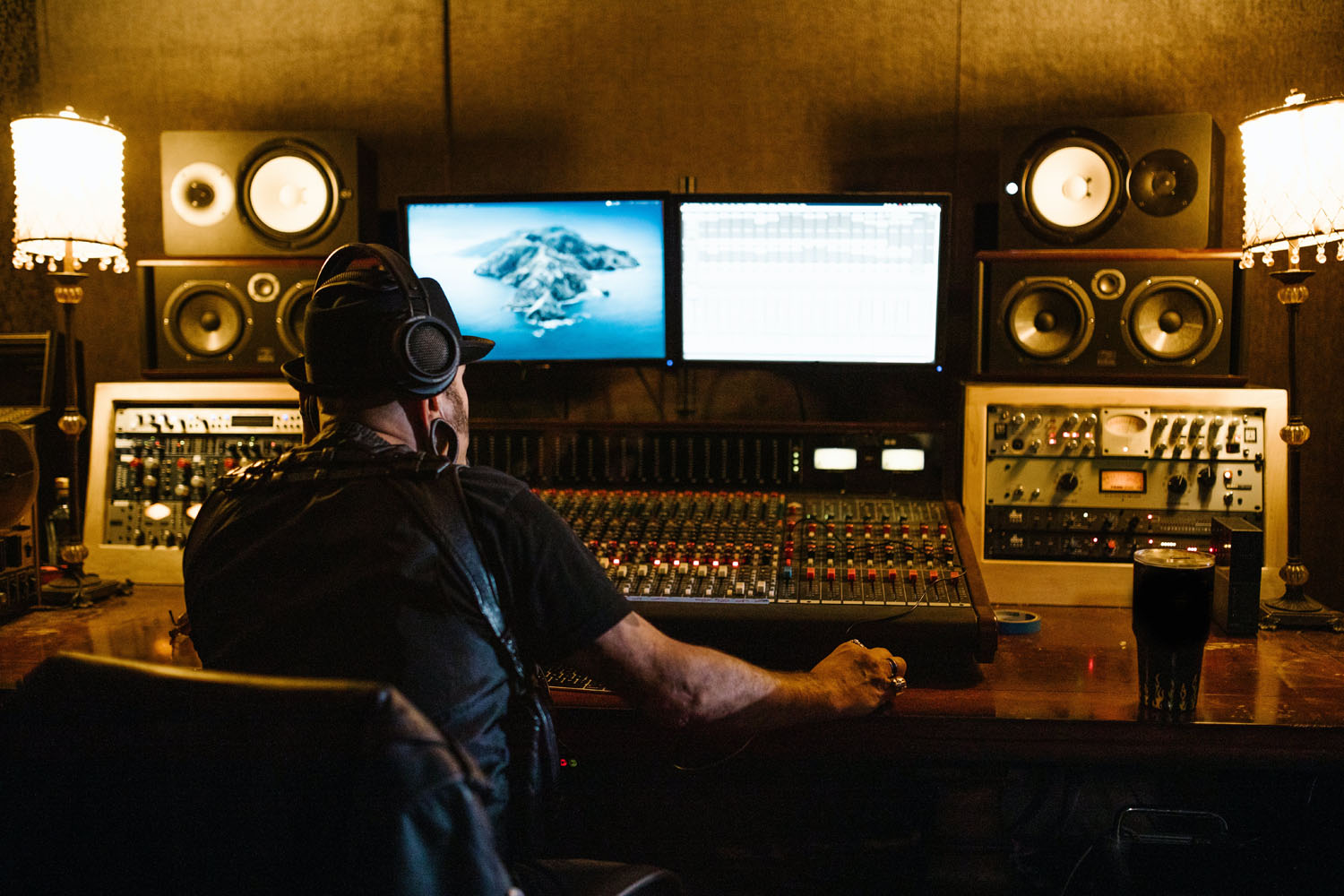5 Best Ways to Find the Perfect Score For Your Film
Feb 6, 2024
Film scoring is a tricky business, especially when we have had genius filmmakers like Tarantino, Nolan, Vanga, and Fincher, who broke many rules in the film scoring domain to create engaging background scores.
So it’s clear that there’s no rule book that one can follow. But there can be various rules of thumb that one can follow. However, these are just thumb rules instead of rules that one is compelled to follow.
Of course, you can go for the traditional orchestra, with violins during emotional scenes and trumpets or hard rock guitars and metal drums during high-octane action sequences. But the best film songs often stand out from the norm.
With that in mind, let’s dive right into the list and see how you can find the best music for films, songs for short films, etc.
1. Have a Reference Score
Begin by selecting a scene from your film that encapsulates the emotional tone and narrative essence you want to convey. Find existing scores from other films that align with the mood you're aiming for. Use this reference as a starting point to communicate your vision to composers or to guide your own composition process.
● Temp Tracks
Utilize temporary or placeholder tracks during the editing phase that closely resemble the atmosphere and emotion you envision for your film. That can guide both the editing team and potential composers, providing a clearer understanding of the desired musical direction.
https://youtu.be/s_MslnztM58?si=MXSKZaWaoAcsA_Hc
● Have a clear vision of what you want
Clearly articulate your vision for the film's music. Define the emotions you want to evoke and the role the music should play in enhancing the overall cinematic experience. Communicate this vision to your composers or collaborators to ensure a unified creative direction.
Consider the following video in which the film director Sandeep Reddy Vanga himself is recording the whistle sound in the studio.
https://youtu.be/4G7p0Q-oRrM?si=1OHqOvuPWa4I1n4y
For more context, this soundtrack really stood out in the film, enhanced the scene’s emotion, and not only perked up the ears of the audience but also compelled them to cheer for the scene in the theatre.
If your vision is still evolving, involve composers or producers in the early stages of pre-production. Their insights and expertise can help shape the musical direction and identify the best fit for your project, ensuring a collaborative and well-integrated approach to the score.
● Study the film
Thoroughly understand the nuances of your film's story, characters, and emotional arcs. Tailor the music to complement these elements, using it as a powerful tool to enhance storytelling and evoke specific emotions at key moments in the narrative.
● Sound design v/s foley v/s score v/s song
Differentiate between sound design, foley, score, and songs and diegetic and non-diegetic sounds. Clearly define each element's role in your film, ensuring they work harmoniously to create a cohesive auditory experience.
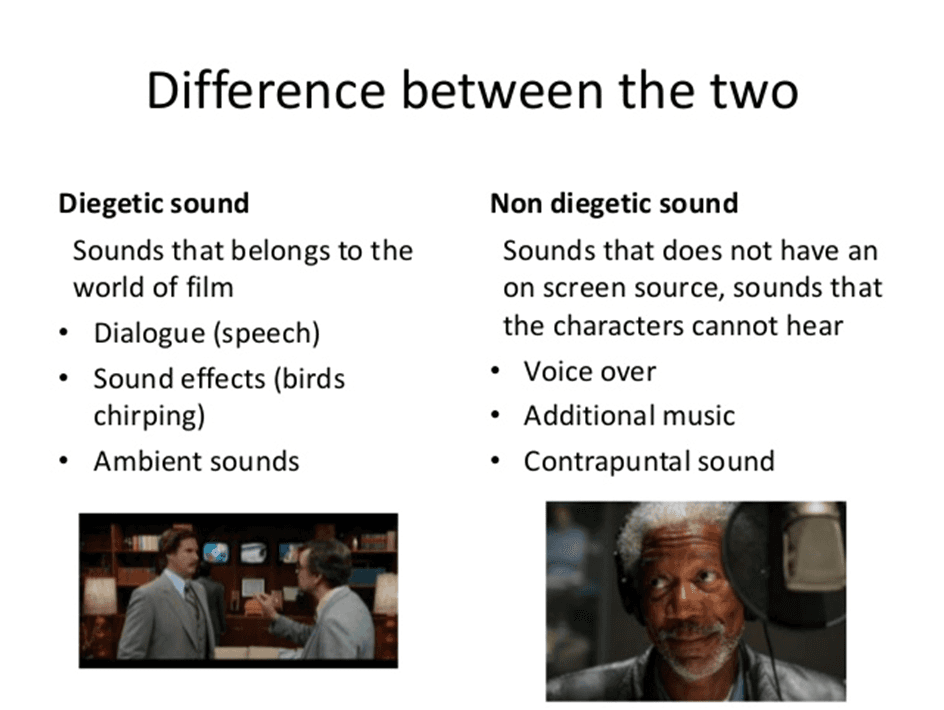
● Learn from the classics
Study classic films and their scores to gain insights into timeless techniques and approaches. Analyze how masterful composers have used music to elevate storytelling and create enduring cinematic experiences. Incorporate these lessons into your own creative process while maintaining a fresh and innovative perspective.
● Take risks
Embrace the spirit of innovation and take risks in your approach to film scoring. Don't be afraid to push boundaries and challenge traditional norms.
https://youtu.be/ywrvXOo4R2M?si=piTbMTfbijgaS8mJ
Tarantino is known for his unconventional choices in music. On the other hand, Marvel has mostly played it “toooo safe,” which is explained really well in the following video.
https://youtu.be/QVRiofzRErc?si=yki32dP45o3iPOA6
2. Define Specifics
When shaping the perfect score for your film, delve into the specifics to guide your composers effectively. Leverage tools like Tunebat, Cyanite AI, Chosic, and AI instrument identifiers on platforms like “there’s an AI for that” to gather detailed information.
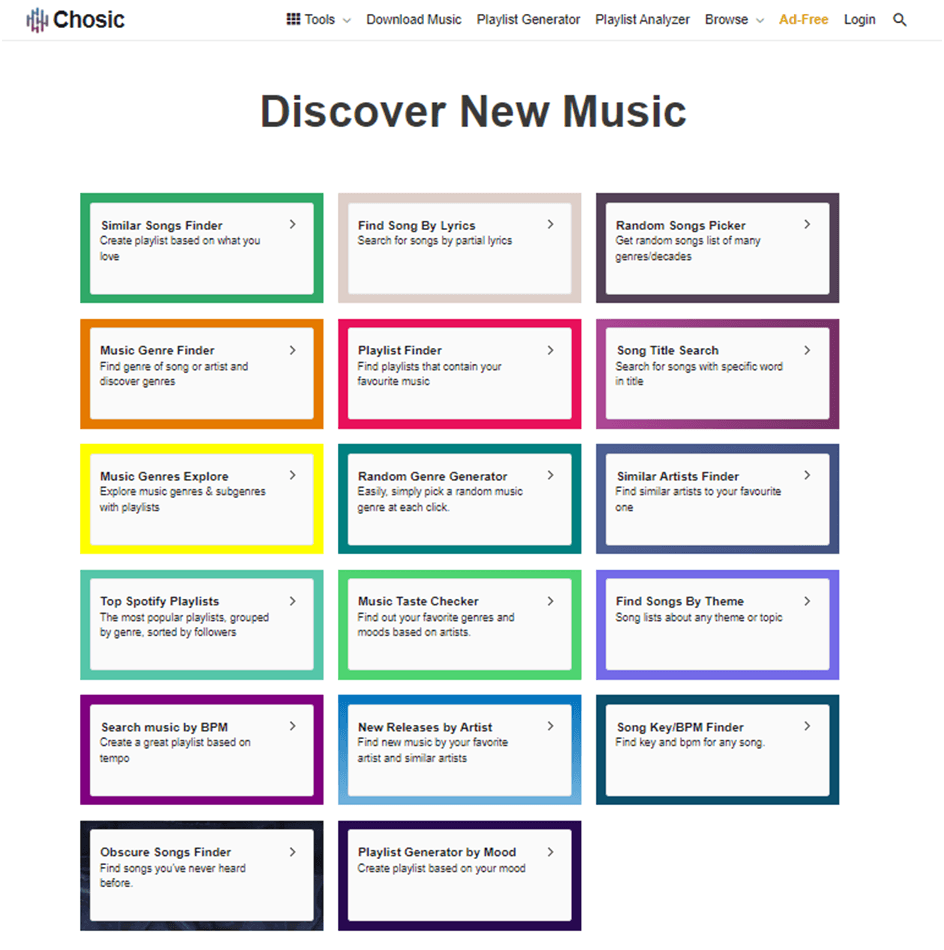
Specify the mood, theme, tempo, key (major or minor), instrumentation, desired length, genre(s), vocal or instrumental preference, and reference artist or song.
Providing clear and detailed guidelines helps streamline the creative process and ensure the final score aligns with your vision.
Specify whatever you can, to the best of your knowledge. Here are some parameters you can decide on and keep in the brief you send to your producers, sound designers, and composers.
● Mood
Clearly state the desired emotion for each scene—tension, joy, sadness, or excitement—to guide composers in crafting fitting music.
● Theme
Identify the film's overarching theme and explain how the score can enhance and reflect it for a cohesive soundtrack.
● Length
Determine desired piece lengths for scenes to ensure seamless integration with film pacing.
● Genre(s)
Specify how the score should navigate genres in multi-genre films, maintaining cohesion while allowing diversity.
● Vocal or Instrumental?
Decide on vocals or an entirely instrumental approach, shaping the overall character of the music.
● Reference Artist/Song
Provide specific references to guide composers, capturing the stylistic elements that resonate with you.
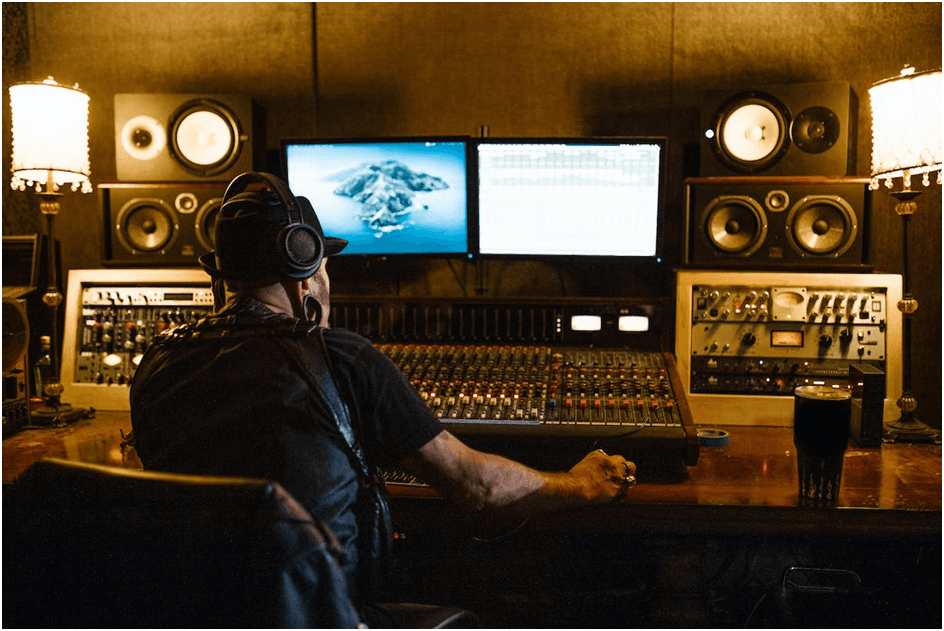
The following parameters are also important but not necessary. In fact, it’s better to discuss these parameters with your composer than to specify them about it beforehand. However, as media professionals working with films/games, it’s important to know about these minor technical details as well.
● Tempo
Define the music's tempo to match scene rhythms, whether slow for poignancy or up-tempo for excitement.
● Key
Specify the preferred major or minor key to influence the emotional tone and resonance of the score.
● Instrumentation
Detail the envisioned instruments—orchestra, electronics, or a unique blend—to bring your musical vision to life.
3. Communicate Effectively
It would be satisfactory if you convey any of the three key aspects mentioned in the previous list. Mood, the type of reference artist/song, and genre are universally recognized as the most crucial parameters.
Next, in your communication, you must convey the following:
● Vision
Clearly articulate how you envision sound contributing to the narrative, character development, and overall atmosphere. Discuss the emotional impact you aim to achieve through sound, ensuring that everyone involved understands the intended cinematic journey.
● Workflow, Feedback, and Revisions
Clearly outline how communication will flow between different stakeholders, such as the director, sound team, and other relevant departments. Discuss scheduled check-ins, milestones, and the process for providing feedback. Ensure that there's a collaborative approach to revisions, allowing for constructive input and adjustments as the project evolves.
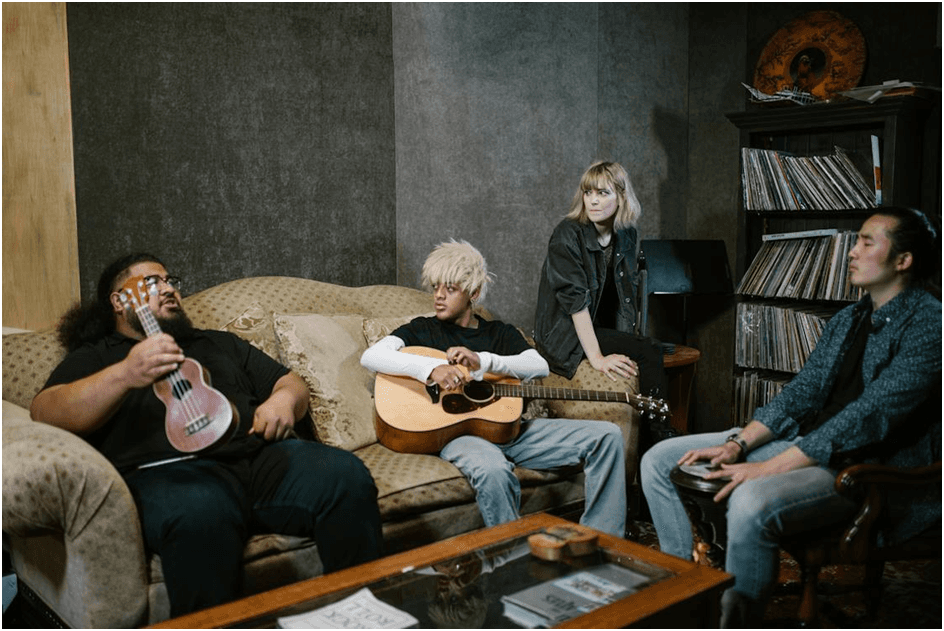
● Budget and Resource Management:
Communicate effectively about the budget and resource requirements for the sound elements of the film. Clearly outline the scope of work, any specialized equipment or personnel needed, and potential additional costs that may arise.
Establish a framework for resource allocation, emphasizing efficiency and cost-effectiveness while ensuring that the creative vision is not compromised. Regular resource utilization and budget adherence updates will help maintain transparency throughout the production process.
4. Online Marketplaces
For hiring composers/producers
● Media Music Composer: Best for hiring music composers, songwriters, producers, and custom music for trailers, video games, films, commercials, etc.
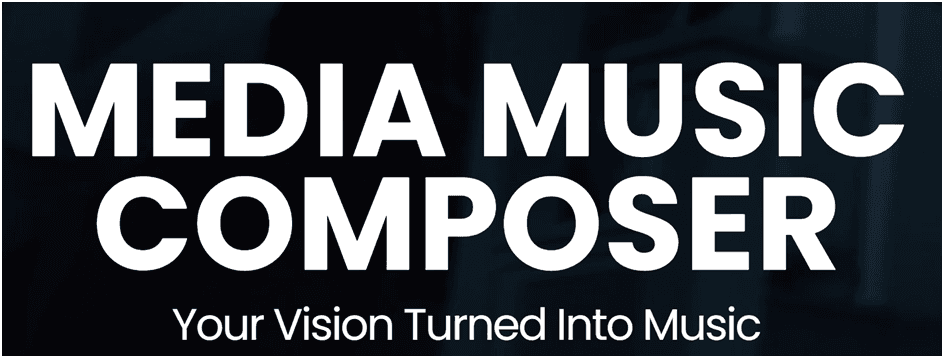

● Soundbetter: Best for finding mixing-mastering engineers, online music composers, producers for music, singers, session musicians, and sound designers.
● Airgigs: Great for freelance music professionals, including voiceover artists, singers, mixing-mastering engineers, online music producers, etc.
● Fiverr: Great for all kinds of freelance media professionals and hiring music prodcers
● Landr: Best for online workflow and finding a network of music professionals.
● UpWork: Post a job and get freelancer’s applications
● Guru: Online freelance portal
For finding licensed soundtracks/scores
● Epidemic Sounds: Royalty-free music for content creators, YouTubers, Twitchers, indie filmmakers, internet filmmakers, etc.
● Premium Beat: Royalty-free music for short films, games, YouTube content, etc., that you can find by genre, mood, instrument, keywords, etc.
● Soundstripe: Royalty-free SFX and music
● Musicbed: Music Licensing for Films, Videos, Games, etc.
● Tracklib: Best for Sample clearance
● Beatstars: Lease/buy beats and soundtracks
● Audio Jungle: Royalty-free sounds
● Storyblocks: Royalty-free audio for content creators, game creators, and filmmakers.
● Kenny: Great for video game sounds and other assets
5. Hire a Music Supervisor
In the world of film and TV, a Music Supervisor is your go-to person for all things soundtrack and music. They're the ones who pick those heart-pounding tunes that make your scenes unforgettable.
They scout out cool new artists, handle all the legal stuff, and work hand-in-hand with directors to blend the music into the project's vibe seamlessly.
How to Find a Music Supervisor?
To find a skilled Music Supervisor, explore industry networks at film festivals, conferences, and online platforms. Professional associations like the Guild of Music Supervisors and websites like LinkedIn and Music Gateway can be solid resources.
Reviewing credits of projects with exceptional music supervision, using collaboration platforms like SyncFloor and Songtradr, seeking recommendations from industry peers, inquiring with entertainment agencies, and engaging in discussions on social media platforms dedicated to film and music professionals are effective strategies.
Consider a Music Supervisor's experience, past projects, and compatibility with your production's vision when making a hiring decision.
Bonus: AI Tools
AI is making the music discovery process easier than ever. With algorithms helping A&Rs and music supervisors find new talents and up-and-coming artists/musicians, things in the entertainment industry are taking a huge shift.
https://youtu.be/bvXgJKqpnSk?si=rejI-aEUiZJ-UKJd
The perfect sound for your films, games, etc., is out there, and AI can help you discover that.
https://youtu.be/Zfc0lVK1vck?si=31ZuWQWdYgUCNaBd
Epidemic Sound Soundmatch is an AI-powered music that analyzes video frames to provide suitable music options for enhancing videos.
● Source Audio Music Supervisor Pro
https://youtu.be/lI1LCfTx2lI?si=DqLFF-0JS1T5JL6n
Musicfy lets you do voice training and cloning and convert vocals into different voices, instruments, etc. Its newly introduced text-to-song converter lets you create music with text prompts.
There are more such tools like kits ai, replay, Google Collab, etc., that you can use for voice cloning and voice dataset training by using the RVC (Retrieval-based-Voice-Conversion) technology.
Conclusion
In conclusion, navigating the intricate world of film scoring demands a delicate balance of tradition and innovation, as witnessed through the groundbreaking works of filmmakers like Tarantino and Nolan. While thumb rules provide guidance, there is no rigid playbook for crafting a memorable score. Leveraging reference tracks, maintaining a clear vision, and understanding the film's nuances are crucial elements in this creative process.
Media Music Composer stands out as a valuable resource for filmmakers seeking skilled composers, songwriters, and producers to tailor music for trailers, video games, films, and commercials. The platform, alongside other online marketplaces, complements the director's vision, allowing for seamless collaboration and exploration of diverse musical possibilities.
Defining specifics, effective communication, and the strategic use of AI tools further enhance the filmmaker's ability to discover the perfect sound for their projects. Embracing innovation, taking risks, and the involvement of a music supervisor contribute to a dynamic and impactful cinematic experience.
As technology continues to shape the landscape of film scoring, platforms like Media Music Composer play a pivotal role in connecting filmmakers with the talent needed to elevate their projects to new heights, ensuring that the art of scoring evolves and thrives in the digital age.
